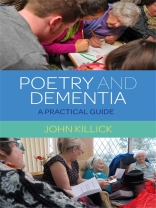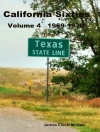Poetry is an engaging and inclusive activity for older people that can help develop memory, imagination and identity. This book provides guidance on setting up and monitoring poetry projects for people living with dementia in group care homes and individual families. It explains the benefits of creative expression for people with dementia, and shows how to facilitate poetry reading and writing groups in different environments.
Specific techniques for introducing poetry to older people can be employed by family members or professional care staff to enhance the wellbeing of the individual living with dementia. The ethical issues of running poetry projects in dementia care are explored along with examples of poetry produced by individuals and groups, interviews with care workers, and case studies.
Tabella dei contenuti
Part One: Introductory. Part Two: Reading Poetry. 2.1 What Poems to Choose. 2.2. Building a Programme. Part Three: Writing Poetry. 3.1. Group-Work and One-to-Ones. 3.2. How to Run Groups. 3.3. Examples of Group-Work Poems. 3.4. Why Do One-to-Ones? 3.5. How to do One-to-Ones? 3.6. The Art of Listening. 3.7. The Art of Transcribing. 3.8. The Art of Editing. 3.9. Ways of Sharing. 3.10. The Present Moment. 3.11. Portraits. Part Four: Issues Arising. 4.1. Ownership of Poems. 4.2. Truth-Telling. 4.3. Aims and Objects. 4.4. Therapeutic Approaches. 4.5. Support for the Poet. 4.6. Evaluation. Part Five: Postscript. Part Six: Resources. 6.1. Recommendations and References. 6.2. Books and Articles. 6.3. Organizations and Websites.
Circa l’autore
John Killick has been the Writer in Residence and Poet Mentor on several Poetry and Dementia projects over the last 25 years. He currently runs a residential Poetry and Dementia course in Wales.












